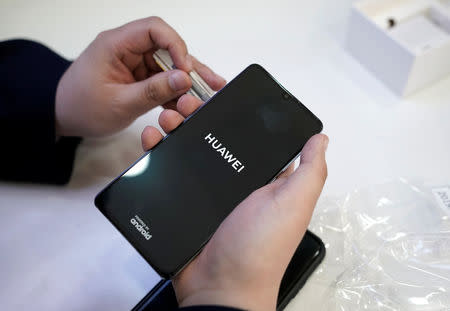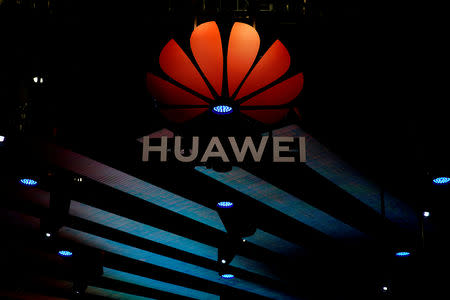China's Huawei makes second attempt at Brazil smartphone market
By Gabriela Mello
SAO PAULO (Reuters) - China's Huawei Technologies Co Ltd is making a second attempt at cracking the Brazilian smartphone market, the fourth-largest in the world, with the launch of two high-end handsets this month, after its cheaper offerings failed to catch on earlier in the decade.
The move will take Huawei beyond its current role in Brazil as a supplier of cellular network equipment to challenge Samsung Electronics Co and Lenovo Group's Motorola brand which dominate the local smartphone market.
"Brazil is a market with very significant opportunities for Huawei and we have a competitive portfolio to satisfy consumers' expectations," said Ketrina Dunagan, Huawei's vice president of marketing for the Americas, in a statement emailed to Reuters.
Huawei's plans for Brazil underscore the rise of Chinese companies expanding in Latin America's technology and consumer sectors, moving beyond a traditional focus on commodities and infrastructure.
Brazil is a rare Latin American market where Huawei's phones are still absent from store shelves. The company currently sells handsets in more than a dozen countries in the region, often with a double-digit market share.
Huawei, the world's third largest smartphone manufacturer, first launched a smartphone in Brazil in 2014, but the Ascend P7 handset met with weak demand and the project was discontinued.
Now, Huawei is planning to import two premium devices from the new P30 Series equipped with high-resolution cameras, the company said, withholding details ahead of the April 30 launch.
"The commercial strategy is completely different this time because the brand is still not well-known by Brazilians," said a person familiar with the matter, requesting anonymity to speak openly about plans that have not been made public.
Whereas five years ago, Huawei set up as a supplier to mobile carriers, which sell just a tenth of new smartphones in Brazil, this time the company is looking to partner with retail chains that sell more than two-thirds of handsets, the source said.
More cutting-edge models should also help Huawei lure the attention of increasingly sophisticated buyers.
"The Brazilian market has reached a maturity level and manufacturers must bring novelties to convince consumers to replace their smartphones for new ones," said Renato Meireles, a research analyst at IDC Brasil.
Smartphone sales in Brazil are expected to fall 4.3 percent this year, Meireles added, after a 6.8 percent drop in 2018.
"The first semester is still affected by economic and political turbulences, but sales should improve in the second semester with the arrival of new players", he said.
(Reporting by Gabriela Mello; Editing by Brad Haynes and Bernadette Baum)


